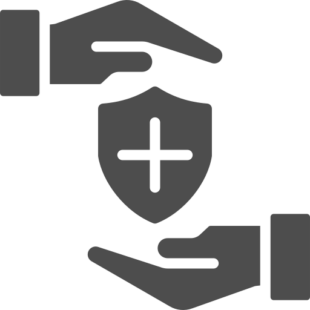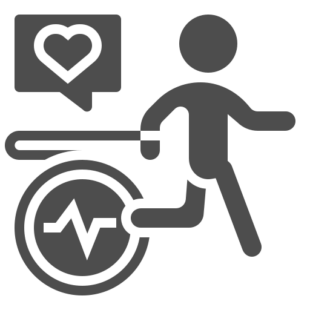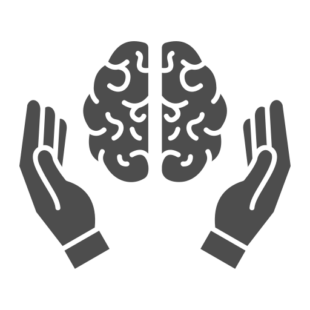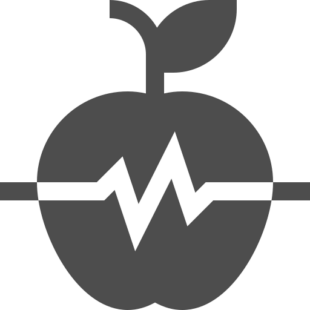
Congratulations! You’ve just completed your Level 3 Diploma in Health and Social Care, and you’re probably feeling a mix of excitement and, maybe, a little bit of “what now?”.
Don’t worry, that’s perfectly normal. While a Level 3 Diploma opens doors to a wide range of fulfilling careers, it can also be overwhelming to navigate the options. Fear not, fellow graduate, because this blog is here to be your guide!
First Things First: What is a Level 3 Diploma in Health and Social Care?
Think of it as your foundation in the vast and rewarding world of caring for others. This qualification equips you with the knowledge and skills needed to work in various healthcare and social care settings. You’ll learn about:
The fundamentals of health and well-being: This includes anatomy and physiology, safeguarding vulnerable individuals, and promoting healthy living.
Communication and interpersonal skills: Effective communication is crucial when building relationships with patients and their families, colleagues, and other professionals.
Promoting independence and well-being: Whether it’s supporting daily living activities or assisting individuals with managing their health conditions, this course prepares you to empower others to live their lives to the fullest.
Exploring Diverse Career Paths: Finding Your Perfect Fit
The beauty of your Level 3 Diploma of health and social care lies in its versatility. So, what kind of jobs can you land with this qualification?
The good news is, quite a few! Here’s a glimpse into some of the exciting options you can explore:
Care Worker
This is the backbone of the healthcare and social care sector. You’ll provide crucial support to individuals in various settings, like:
Residential Care Homes: Assisting elderly residents with daily living activities, promoting their well-being, and providing companionship.
Hospitals: Offering support to patients during their recovery, ensuring their comfort and performing basic care tasks.
Domiciliary Care: Providing in-home care to individuals with specific needs, enabling them to live independently for as long as possible.
Support Worker
This role involves working with individuals facing specific challenges, such as:
Mental Health: Providing emotional and practical support to individuals struggling with mental health conditions, promoting recovery and well-being.
Learning Disabilities: Offering tailored support to individuals with learning disabilities, assisting them in reaching their full potential and maximizing their independence.
Physical Disabilities: Aiding individuals with physical limitations in their daily lives, assisting them with mobility, communication, and other essential tasks.
Healthcare Assistant
Working alongside medical professionals like nurses, you’ll:
Perform essential tasks like taking vital signs, monitoring patients’ conditions, assisting with personal care, and preparing medications under supervision.
Play a crucial role in supporting healthcare teams, ensuring efficient and smooth operation of healthcare settings.
Community Support Worker
If you have a passion for social care, this role will let you work within the community, supporting individuals and families facing challenges like:
Poverty: Providing resources, guidance, and support to individuals struggling financially, helping them access benefits and improve their living standards.
Domestic Violence: Offering support and guidance to victims of domestic violence, connecting them with essential services and advocating for their safety and well-being.
Housing Issues: Assisting individuals and families facing issues like homelessness, helping them secure safe and affordable housing options.
Specialised Roles
Aside from these core roles, numerous specialized options exist, including:
Occupational Therapists: Helping individuals regain and maintain independence through therapeutic activities and interventions.
Speech and Language Therapists: Working with individuals facing communication difficulties to improve their speech, language, and swallowing abilities.
Physiotherapists: Assisting individuals in improving their mobility and physical function through exercise programs and manual therapy techniques.

So You’ve got Your Level 3 Diploma in Health and Social Care – Now What?
Let’s break down the different levels of qualifications available:
Imagine a ladder of qualifications, and you’ve just climbed three rungs by getting your Level 3 Diploma. But the ladder goes higher! Here’s a breakdown of the different levels offered by Skills for Care, the organisation that designed these qualifications:
Awards and Certificates: These are the first steps on the ladder, ideal for people new to social care. They provide a basic foundation in the field.
Diplomas: These are for experienced social care workers like yourself. Your Level 3 Diploma falls into this category.
Further Qualifications: If you’re aiming for a management role, there’s a whole range of qualifications designed to help you climb even higher on the ladder.
What About the Details of Each Level?
Level 2
This diploma is perfect for roles like care assistants, key workers, healthcare assistants, and support workers. You can even specialise in caring for adults or children and young people, depending on your interests. You’ll learn about:
The Different Areas of Social Care: Get a broad understanding of the various ways social care workers support people.
Equality and Diversity: Learn how to ensure everyone receives fair and appropriate care, regardless of their background.
Your Responsibilities: Understand your duties towards the individuals you care for.
Safeguarding: Equip yourself with the knowledge to protect individuals from harm.
Individualised Care: Learn how to adapt your approach to meet the unique needs of each person.
Health and Safety: Gain essential knowledge to keep yourself and those you care for safe.
Confidentiality: Understand the importance of protecting personal information.
Level 3
This is where your Level 3 Diploma comes in! Building on the foundation of Level 2, you’ll delve deeper into communication skills and explore personal development. This level opens doors to more experienced roles in healthcare and social care, like senior care assistants, key workers, and healthcare assistants.
And Beyond Level 3?
The ladder doesn’t end there! If you’re looking to become a manager, a Level 5 diploma is the next step. Additionally, once you’ve completed your Level 3 Diploma, you can pursue specialised qualifications (Levels 2 and 3) in specific areas like learning disabilities, dementia, or end-of-life care. These qualifications build on your experience and help you excel in your chosen field.
So, whether you’re just starting your journey in health and social care or aiming to climb higher, there’s a qualification out there to support your goals. Remember, your Level 3 Diploma is a significant achievement, and it opens doors to a world of possibilities in this ever-growing and rewarding field.
Beyond the Qualification: Skills You Need to Shine
While your qualification is vital, it’s not the sole factor in landing your dream job in health and social care. Here are some additional skills that will make you stand out:
Compassion and Empathy: Working in healthcare and social care is all about human connection. The ability to understand and empathise with individuals, regardless of their background or situation, is crucial.
Teamwork: Collaboration is key in any healthcare setting. You’ll be working alongside other professionals, so the ability to communicate effectively and work towards common goals is essential.
Problem-solving and Initiative: Challenges are inevitable in this field. The ability to solve problems creatively and take initiative will be valuable assets.
Lifelong Learning: The healthcare and social care sectors are constantly evolving. Staying up-to-date and continuously learning new skills will keep you ahead of the curve.
Solid Foundation in Health and Well-being: You’ve gained a comprehensive understanding of human anatomy and physiology, safeguarding vulnerable individuals, and promoting healthy living. This knowledge forms the core of providing quality care.
Embrace the challenges, celebrate the successes, and most importantly, never stop learning and growing. You have the potential to make a real difference in the lives of others, and that’s something to be truly proud of!

Bonus Tip: Don’t forget to explore resources like job search websites, career guidance services within your college, or even reach out to professionals in the field of health and social care for advice and mentorship. Networking can be a powerful tool, so don’t be afraid to connect with others and build your support network.
With your dedication, passion, and the invaluable knowledge gained from your Level 3 Diploma, you’re well on your way to a fulfilling career in the rewarding world of health and social care!
- All Courses
Personal Development (1218)
 Employability (368)
Employability (368) Management & Administration (298)
Management & Administration (298)Health & Social Care (268)
 Health and Safety (264)
Health and Safety (264)Business (212)
IT & Software (190)
 Health and Fitness (183)
Health and Fitness (183) Teaching & Education (155)
Teaching & Education (155) Accounting & Finance (107)
Accounting & Finance (107) Mental Health & Counselling (101)
Mental Health & Counselling (101) Science & Technology (99)
Science & Technology (99) Sales & Marketing (82)
Sales & Marketing (82) Art & Design (81)
Art & Design (81) Construction & Engineering (80)
Construction & Engineering (80)Language (67)
 Compliance & Law (67)
Compliance & Law (67)Career Bundle (57)
 Photography & Lifestyle (45)
Photography & Lifestyle (45) Animal Care (36)
Animal Care (36) Sports & Fitness (34)
Sports & Fitness (34) Diet & Nutrition (28)
Diet & Nutrition (28)Makeup & Beauty (26)
 Food Safety & Hygine (21)
Food Safety & Hygine (21)First Aid (19)




0 responses on "What Jobs Can You Get With Health and Social Care Level 3 Diploma"